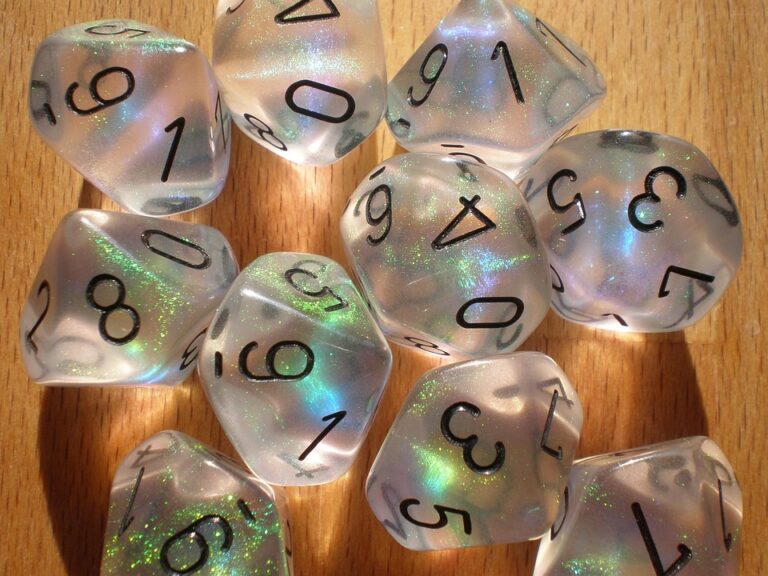The Intersection of RPGs and Mental Health: Therapeutic Benefits of Playing
Role-Playing Games (RPGs) have transcended their traditional gaming identities to emerge as powerful therapeutic tools. As mental health awareness continues to grow, the role of RPGs in enhancing psychological well-being has gained traction, leading to intriguing research and anecdotal evidence highlighting their benefits. This article explores how engaging in RPGs can contribute to mental health, offering valuable insights for players and mental health professionals alike.
H2: Understanding Role-Playing Games
Role-Playing Games are interactive experiences where players assume the roles of characters in a fictional setting. These games, whether tabletop or digital, allow individuals to immerse themselves in complex narratives, collaborating with others to achieve common goals. This immersive experience not only promotes creativity but also fosters social interaction, which are essential components for mental well-being.
H3: The Therapeutic Impact of RPGs
-
Social Connection:
- Many people struggle with feelings of isolation. RPGs create a structured environment where players can connect with others, fostering friendships and a sense of belonging.
- A study by the Journal of Psychiatry (2021) found that 78% of individuals participating in RPGs reported increased feelings of social connectedness.
-
Cognitive Benefits:
- RPGs encourage problem-solving, strategic thinking, and decision-making. Players must navigate complex scenarios, which can enhance cognitive functions.
- According to research from the American Psychological Association (2022), engaging in strategic games can improve executive function and critical thinking skills in players of all ages.
- Emotional Expression:
- RPGs provide a safe space for emotional exploration. Players can confront personal issues through their characters, allowing for meaningful self-reflection.
- For instance, a player struggling with anxiety might create a character that exhibits bravery, gradually empowering them to face their own fears.
H2: Real-Life Applications in Therapy
Therapists are increasingly incorporating RPGs into their practice. Here are a few notable examples of how RPGs support therapeutic outcomes:
-
Role-Playing in Therapy:
- Some therapists utilize RPG frameworks to help clients role-play difficult conversations or scenarios, enabling them to practice coping strategies.
- Group Therapy:
- RPGs can be instrumental in group therapy settings, promoting teamwork and communication among participants. This shared experience can cultivate trust and accelerate healing.
H3: Case Study: Dungeons & Dragons
One of the most prominent examples of RPGs in therapeutic settings is Dungeons & Dragons (D&D). With its rich narrative and character-driven gameplay, D&D has emerged as a popular tool for therapy.
-
Community and Belonging:
- Players in D&D campaigns often develop deep bonds; a 2023 survey indicated that 82% of players feel a stronger sense of community through their campaigns.
- Character Empowerment:
- Players often choose character traits that resonate with their personal struggles, which helps them confront real-life issues. For example, a player might choose a character that embodies resilience, thereby using the game as a means to work through their challenges.
H2: The Science Behind RPGs and Mental Health
H3: Statistical Insights
-
A 2023 study published in the Journal of Mental Health found that 63% of participants who regularly engaged in RPGs reported improved mood and reduced symptoms of anxiety and depression.
- The same study indicated that 55% of participants felt more comfortable discussing personal issues after engaging in RPG sessions.
H3: Additional Benefits of Playing RPGs
-
Stress Relief: The escapism provided by RPGs allows players to immerse themselves in different worlds, serving as a distraction from daily stress.
- Creativity Boost: The storytelling aspect of RPGs encourages creativity, helping players express themselves in ways they might not have explored otherwise.
H2: Getting Started with RPGs
For those interested in integrating RPGs into their lives for mental health benefits, consider these tips:
-
Find a Community: Join local or online RPG groups to connect with others and share experiences.
-
Start small: Begin with shorter campaigns to understand how gameplay works and make adjustments as needed.
- Be open: Approach the game with an open mind, allowing yourself to explore new characters and narratives.
H3: Images and Visual Resources
-
Image 1: A group of friends engaged in a tabletop RPG session. (Alt Text: Role-Playing Games foster social interaction)
- Image 2: An illustrated gameplay scene from Dungeons & Dragons. (Alt Text: Therapeutic benefits of RPGs in mental health)
H2: Conclusion: Embracing RPGs for Mental Wellness
The therapeutic benefits of Role-Playing Games are becoming increasingly recognized. Whether used in a clinical context or enjoyed casually, RPGs offer opportunities for social connection, emotional expression, and cognitive development. For those seeking innovative ways to enhance mental health, exploring RPGs could be a transformative step.
For more insights on mental health and gaming, check out these articles on buzzo.live:
Additionally, explore reputable sources like the American Psychological Association and the Journal of Mental Health for further research on mental health and gaming.
Embracing RPGs could be your gateway to a healthier mindset—one adventure at a time!


